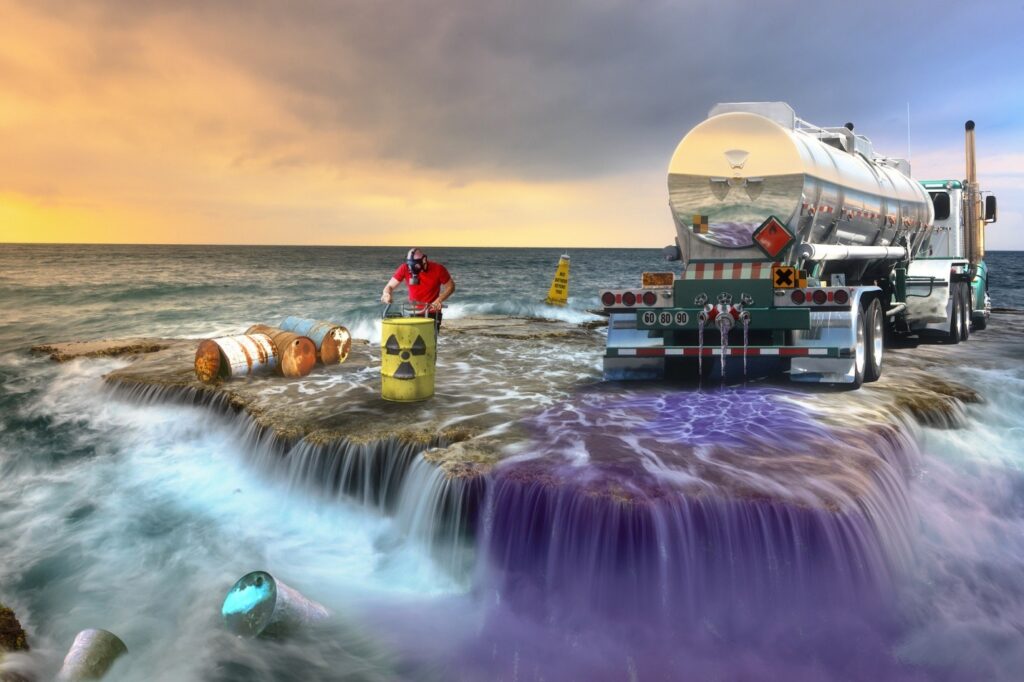Our Reclaim Waste PDFs
Our Reclaim Waste PDFs
Blog Article
8 Easy Facts About Reclaim Waste Explained
Table of ContentsGet This Report about Reclaim WasteNot known Incorrect Statements About Reclaim Waste See This Report on Reclaim WasteReclaim Waste Fundamentals ExplainedThe Best Guide To Reclaim Waste
Check out the kinds, occurrences, and types of liquid waste. Residential sewer waste describes the waste and items from a domestic septic system. This kind of waste is developed by people in houses, schools, and other structures. This only consists of septic systems that have a drainpipe field. The appropriate management and disposal of residential sewer waste call for liquid waste to be transferred to a sewage therapy plant where the proper methods and devices are applied to detoxify and throw away waste.
Commercial waste commonly consists of possible dangers, such as flammable materials or a blend of fluid and strong waste products, and calls for a much more sophisticated and comprehensive disposal procedure. The disposal of commercial waste typically involves the purification of waste before transportation to guarantee safe and appropriate disposal. Hazardous waste is produced from byproducts and overflow of industrial processes and production.
This sort of waste can not make use of the exact same sewage management transport or processes as septic or commercial fluids. The commercial waste monitoring procedure calls for the assessment and testing of liquid waste before it goes through the disposal process (industrial wastewater treatment). Overflow waste is the liquid waste that comes from drainage and excess stormwater in highly booming areas or cities
Overflow waste can trigger contamination and flooding if not managed correctly. Discover more concerning sewer cleaning and waste administration. Making certain appropriate waste management can protect against catastrophes and reduce environmental damage. Both people in household setups and experts in industrial or manufacturing markets can take advantage of understanding the procedures and laws of fluid waste monitoring.
Rumored Buzz on Reclaim Waste
Get in touch with PROS Services today to discover our waste management and disposal solutions and the proper means to care for the fluid waste you produce.
(https://writeablog.net/reclaimwaste1/reclaiming-resources-a-comprehensive-guide-to-industrial-wastewater-treatment)Do you recognize what happens to your water when you disengage, flush the bathroom or drain the washing equipment? No? Well, it deserves recognizing. This so-called 'wastewater' is not just a crucial source however, after therapy, will certainly be released to our land, waterways or the ocean. Used water from commodes, showers, baths, kitchen area sinks, laundries and industrial procedures is called wastewater.

water made use of to cool down machinery or tidy plant and devices). Stormwater, a kind of wastewater, is runoff that moves from agricultural and city locations such as roofing systems, parks, yards, roadways, courses and seamless gutters right into stormwater drains, after rain. Stormwater streams unattended directly to neighborhood creeks or rivers, ultimately getting to the sea.
Some Known Incorrect Statements About Reclaim Waste
In Queensland, the majority of wastewater is dealt with at sewer treatment plants. Wastewater is carried from residential or commercial websites through a system of drains and pump stations, referred to as sewage reticulation, to a sewer therapy plant. City governments build, preserve and run most sewage treatment plants. Operators are certified under the Environmental Defense Act 1994 to release cured wastewater at an appropriate ecological criterion right into rivers.
The Division of Natural Resources suggests city governments regarding handling, operating and preserving sewerage systems and therapy plants. In unsewered locations, local federal governments may require householders to mount private or home sewage treatment systems to treat domestic wastewater from commodes, kitchens, shower rooms and laundries. The Department of Natural Resources authorizes using family systems when they are verified to be effective.
Many stormwater receives no therapy. In some new communities, treatment of some stormwater to remove trash, sand and gravel has begun utilizing gross contaminant catches. Wastewater treatment happens in four stages: Gets rid of strong issue. Bigger solids, such as plastics and various other items mistakenly discharged to sewage systems, are removed when wastewater is travelled through screens.
Uses little living microorganisms recognizes as micro-organisms to damage down and eliminate remaining liquified wastes and great fragments. Micro-organisms and wastes are integrated in the sludge.
Reclaim Waste - The Facts
Nutrient removal is not available at all sewage treatment plants since it requires expensive specialist devices. Clear liquid effluent produced after treatment might still contain disease-causing micro-organisms - liquid waste removal.

This normally means wastewater needs to be dealt with or impurities gotten rid of prior to it can be released to rivers. Many wastewater moves into the sewerage system. Under the Act, city governments provide authorizations and permits for ecologically pertinent tasks (Ages) including wastewater releases that might have a local effect. The division provides approvals and permits to Ages including wastewater releases that could have a regional or statewide impact.
The Reclaim Waste Diaries
Or else, samples are considered laboratory evaluation. Typically lots of examinations are required to establish the levels of each of the various contaminants such as oils, heavy metals and chemicals in water. Monitoring gives valid information regarding water top quality and can verify that licence problems are being met. The info obtained via surveillance provides the basis for making water quality choices.
Report this page